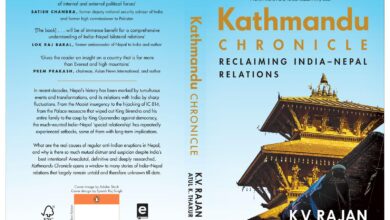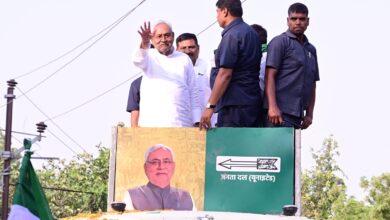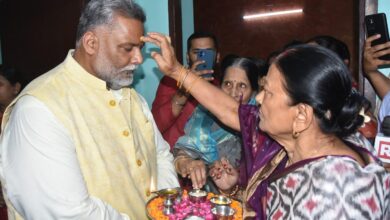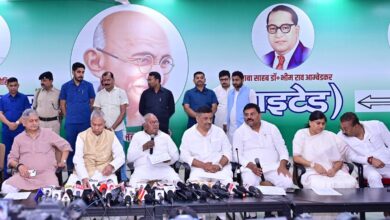Breakdown moments

By Atul K Thakur
As a slogan, India’s Prime Minister Narendra Modi called for ‘Making New India’. Often he cited the odds that he identified with the old order mostly governed by the Indian National Congress. His judgement and justification for the new offering was unilateral where he envisioned making a departure from the phases of contemporary history on which he had seen no familiar footprints. Supported by an emphatic victory in the 2019 parliamentary elections, he rose to the supreme rank again with a clear resolve to implement the core agendas of his party, the Bharatiya Janata Party.
In the implementation mode, he succeeded in scrapping Article 370 of the constitution revoking the autonomy granted to Jammu and Kashmir and dissolving its statehood for making it a Union Territory. To make the Ram Temple in Ayodhya, the Supreme Court gave a verdict that too met with the expectations of the ruling regime. As promises were made to take India on a new path, it was decided to put Indian universities on the receiving side with little or no space for dissent against government policy.
Unusual fame
Jawaharlal Nehru University, one of South Asia’s premier institutions, hence shot to unusual fame following a crackdown by government agencies as the students had certain reservations against the policies related to academic processes and an unusual fee hike. It didn’t rest there as ideologically-driven assailants from outside the campus attacked the students in their hostels at midnight, and that further fuelled protests across the world including Nepal.
The matter was still unresolved when the government came out aggressively to implement the National Register of Citizens, National Population Register and Citizens (Amendment) Act. In the absence of proper expert consultations and clarity in framing, these laws were, and still are, complex and very difficult to understand. Next to it, the provisions are contentious as they don’t treat the minorities of Indian origin living in the region with religious neutrality. Apparently, India’s constitution which has a reputation for prioritising ‘inclusiveness and secularism’ doesn’t echo the same voice.
India, the world’s largest democracy, puzzled with the dichotomy that emerged out of the change in priorities and having the camps overtly divided between the government and the masses. While the sides had their preferences and reservations which were amply reflected through protests and counter-action (or indifference), the opposition parties simply gave a disappointing signal with the inability to understand the seriousness of the unrest and act accordingly.
Whatever India has witnessed at Shaheen Bagh and other parts of the country is deemed fit to be called ‘unfortunate’. Democracy is endangered, and the democratic spirit downgraded beyond imagination. What has persisted instead is a kind of perpetual hatred with a capacity to destroy basic civility and the foundation of a modern liberal nation.
The set and merging trends are not in favour of India; it is also in dire straits due to the bad management of the economy and neglect of the process of consultation and consensus making. The jolt received from the demonetisation and the compliance-heavy and cumbersome Goods and Services Tax had yet not ceased before the outbreak of the financial sector crisis surfaced, and now the system is appearing to be jittery.
Yes Bank, India’s fourth largest private sector bank, has been placed under a moratorium, and its depositors are not allowed to withdraw their money till early April. The Reserve Bank of India, the central bank with a very impressive history, couldn’t manage this specific crisis and structural weakness in the sector for a long period of time before it boomeranged. In the coming weeks, the Indian economy will usher in a period that will see the planned weakening, collapse and re-structuring of its leading public sector units.
In normal times, the counter-narrative of such a free fall would have been much different than what comes through now. While the government is failing its citizens in India today, a large chunk of them are saturated and unresponsive to their own failing conditions. This is happening as the ‘grand narrative’ built around making a departure from the past and establishing a ruling system combined with electoral democracy and Hindutva still has appeal to placate people’s inner callings to claim back sanity in public life. What is happening in India today is unprecedented in its history as a formidable democracy. Indeed, a sort of departure is in the offing, and that sadly is from the ‘Idea of India’.
While the domestic front is challenged, not anything better can be expected from global trends either. An overall economic slump worldwide and the perils of coronavirus have added to the troubles of India and the entire South Asian region. The looming danger over China’s economic and strategic clout and the shifting of trade movements from Asia is a smoke signal of a larger crisis lying ahead with a fresh round of economic hardship.
With so much at stake, India’s outreach has been affected in the neighbourhood and in the world. The ‘Neighbourhood First’ promise is a memory now. With Nepal, the part of the story will get completed only in acknowledging the opportunities forgone. On both sides, the brazen gaps in talks and delivery have truly impacted the strategic, economic and infrastructural cooperation between the two countries.
Ceremonial nature
The stalled projects meant to improve regional and sub-regional cooperation are not making significant progress for want of policy formulation and action. The developmental aspects of loss are too big to be reckoned easily; sadly, there is no unrest among those who are in command. Today, the major engagements that we are seeing between India and Nepal are tried, tested and tired. They are of a ceremonial nature and primarily serve the cause of instant gratification.
As the breakdown moments will not stop too soon, it is time to analyse India, Nepal and the region through a realistic prism. There is no point being bullish on the adverse fundamentals being coped with today!
(Atul K. Thakur is a Delhi-based policy professional and an advisor, BiharConnect. This article was first published in The Kathmandu Post)
Disclaimer: The opinions expressed within this article are the personal opinions of the author. The facts and opinions appearing in the article do not reflect the views of BiharConnect and BiharConnect does not assume any responsibility or liability for the same.




